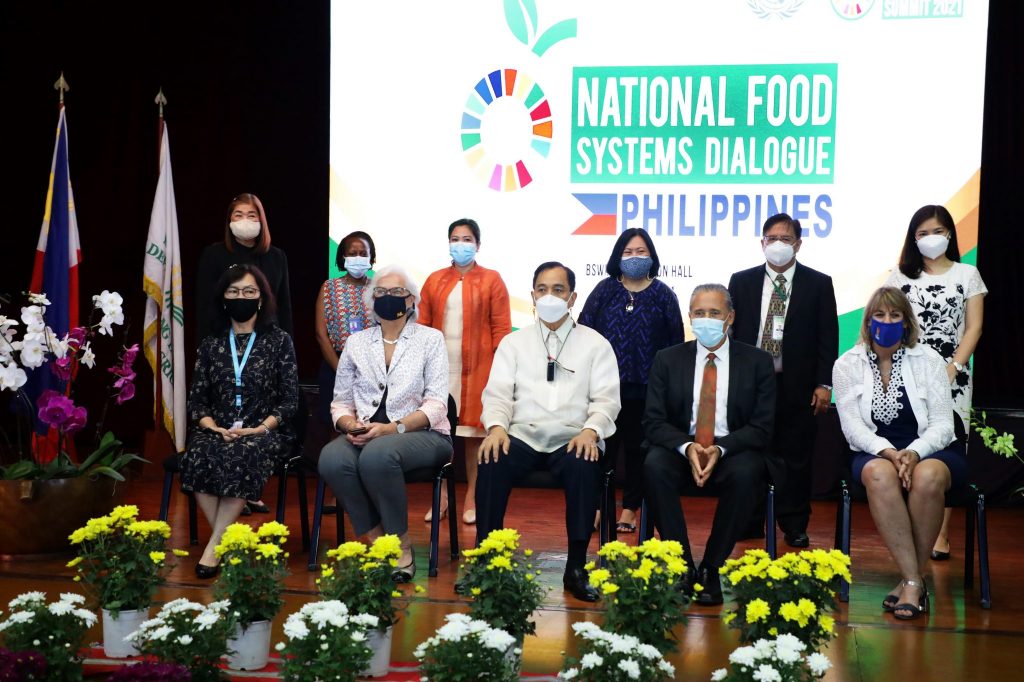
Agriculture Secretary and UN Food Security Systems national convenor, Dr. William D. Dar, has urged the public and private sectors to partner with his Department in achieving sustainable food systems in the country.
“Beyond food production, food systems also comprise processing, distribution, preparation, consumption, the market and institutional networks for governance, and the socio-economic and environmental outcomes of these activities,” he said in his speech during the National Food Systems Dialogue, July 13-14.
He explained that to achieve sustainable food systems, it requires synergy among relevant national government agencies, local government units (LGUs), key stakeholders, academe, and the private sector to transform food systems to be responsive to the 2030 Sustainable Development Goals.
Dar acknowledged that building partnerships is not easy because of conflicts of interest, colliding ideologies, and immiscible cultural norms, but it is possible.
“Even with the pandemic as a morbid pretext, the agriculture sector witnessed the coming together of stakeholders against hunger. The DA formed multiple partnerships with other national agencies for programs under our pandemic recovery program, Plant, Plant, Plant,” he said.
He cited partnerships with the Departments of the Interior and Local Government and Transportation, which helped mobilize farmers’ produce amid border closures.
The secretary added that private sector players joined in the Department’s Kadiwa ni Ani at Kita program that directly procures food from farmers and sells the produce at affordable prices. He also recognized the Department of Trade and Industry’s help in holding down pork prices at the height of the African Swine Fever outbreak.
With more partnerships, Dar is looking ahead to significant accomplishments. “We wish to highlight, for instance, [that] continued partnerships with the LGUs [will result] in the establishment of food markets in their respective areas; properly supported by needed cold storage facilities and logistics system that includes reefer vans to reduce postharvest losses and food wastage,” he said.
“With the implementation of the Mandanas-Garcia ruling next year, we [also] wish to see the LGUs becoming the real “food security czars.” They should now actively boost their respective agri-fishery sector, and we at DA will remain as their guide and provider of needed technical support,” he said.
He also highlighted the contributions of other government agencies to eradicate hunger and address malnutrition by 2030. “Our food system should be able to adapt to climate change, in as much as it should weather external shocks like the COVID-19 pandemic. The overall goal is to reconcile the need for meeting the demands of the growing population, [while] restoring the environment and improving the quality of our natural resources,” he explained.
Dar will present the insights and suggestions from the National Dialogue in the UN Food Systems Summit in September.




